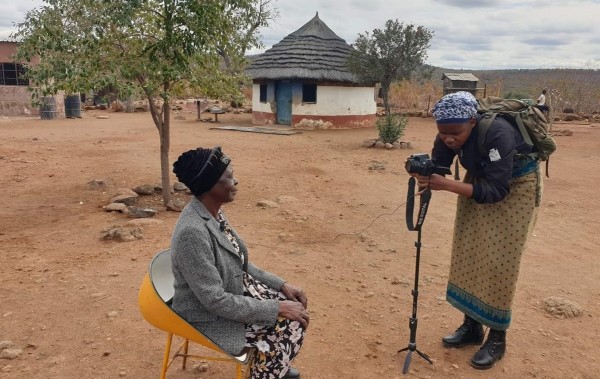Recent attacks against journalists in Zimbabwe could make it difficult for citizens there to receive relevant and timely information ahead of the country’s July 31 parliamentary and presidential elections, according to International Press Institute Executive Director Alison Bethel McKenzie.
On June 14, three masked assailants reportedly abducted Zimbabwean freelance journalist Paul Pindani from his home in Chinhoyi, a college town about 125 kilometers (75 Miles) outside of the capitol of Harare, before gagging, assaulting and leaving him for dead. According to reports, Pindani was later hospitalized with a broken arm and numerous bruises.
In addition to Pindani, three other journalists were attacked earlier this month.
On June 8, Bernard Mapwanyirea, a reporter at The Masvingo Mirror, was roughed-up by security staff working for Prime Minister Morgan Tsvangirai’s Movement for Democratic Change (MDC-T) party while covering an election campaign.
On June 7, MDC-T security staff also assaulted Herbert Moyo, a reporter for the business weekly Zimbabwe Independent, while he was covering a protest outside of the party’s headquarters.
And on June 6, Chronicle reporter Mashudu Netsianga was detained and questioned by MDC-T security staff for allegedly “gate-crashing” a meeting between Tsvangirai and members of the business community in Bulawayo. MDC-T security reportedly confiscated Netsianga’s notebook and deleted his recordings during his interrogation.
“The recent attacks against journalists in Zimbabwe are extremely troubling, especially in light of the need for citizens there to have accurate and timely information ahead of the upcoming elections,” Bethel McKenzie said. “We wish Mr. Pindani a speedy recovery and urge authorities in the country to ensure that journalists are able to work without the threat of violence,” she added.
James Muonwa, correspondent in the Mashonaland West province for the website NewsDay and vice president of the local chapter of the Zimbabwean Union of Journalists, stated in news reports that Pindani had been attacked in connection with a June 11 story in NewsDay, which alleged that a member of the ruling ZANU-PF party had been arrested on charges of fatally assaulting a local businessman.
Muonwa also said the attackers suspected that the story was attributed to Pindani because he was the most well-known journalist in the area, but that he was not in fact its author. According to Muonwa, Pindani told him about threats that he had received prior to the attack. Police are currently investigating the attack, but have not yet made an arrest or named suspects.
“Unfortunately journalists are used to this kind of attitude to their work. It is more disturbing that three of these recent attacks were committed by opposition security staff,” Geraldine Jackson, station manager of Zimbabwe-centered Shortwave Radio Africa (SWRA) told IPI.
Jackson also explained that SWRA is currently in exile in the UK, “precisely because of this lack of media freedom.
“While some independent newspapers are allowed to publish in Zimbabwe, the attitude to the electronic media is more extreme and we are not allowed to broadcast in Zimbabwe,” she added.
Jackson speculated that “there seems to be no end in sight to the belief, apparently prevalent in all political parties, that the media is the enemy and journalists working in-country can only expect these attacks to increase ahead of the elections.”
The Zimbabwe Independent suggested in an editorial that the current climate of violence towards journalists was not surprising given the country’s high level of political polarization.
The July 31 presidential and parliamentary elections will witness an end to the power-sharing agreement between President Robert Mugabe’s Zimbabwe African National Union Patriotic Front (ZANU-PF) and Prime Minister Morgan Tsvangirai’s faction of the Movement for Democratic Change.
On June 12, Zimbabwean police reportedly warned political leaders against inciting their supporters amidst the pre-election tension and recent attacks on journalists.


